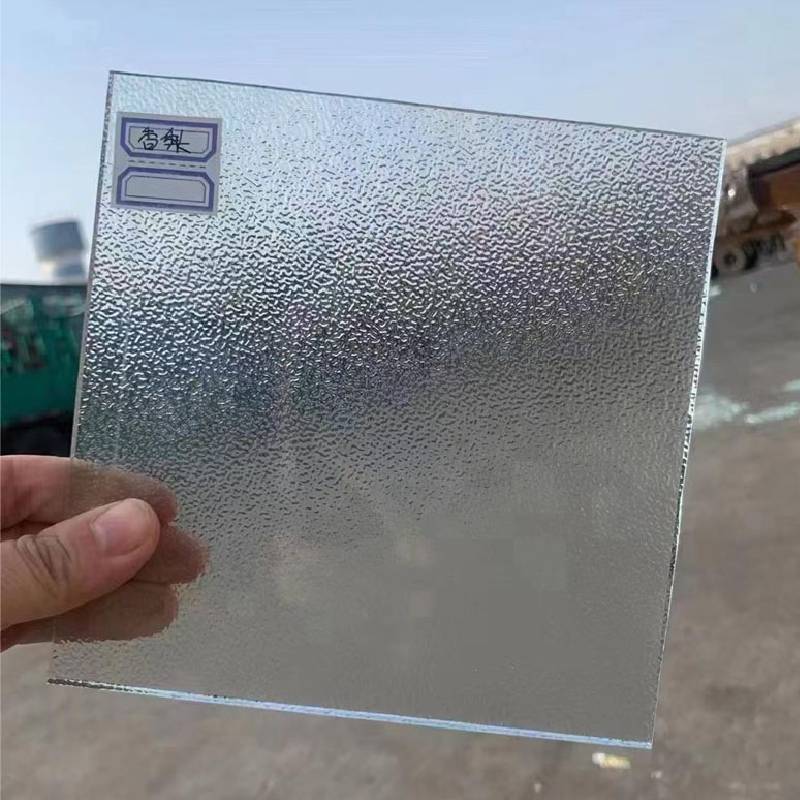The Advantages and Applications of Float Glass Panels
Float glass, a fundamental material in modern architecture and design, refers to a type of glass created by floating molten glass on molten tin. This unique manufacturing process results in a flat, uniform surface that is free from distortions, making float glass panels ideal for a variety of applications.
One of the primary benefits of float glass panels is their clarity. The smooth surface and lack of imperfections allow for brilliant light transmission, enabling natural light to fill spaces while maintaining a clear view. This characteristic makes float glass an excellent choice for windows, facades, and glass doors in both residential and commercial buildings. Homeowners and architects alike value the aesthetic appeal and functional attributes of float glass, as it enhances the overall visual experience of any space.
Moreover, float glass panels are highly versatile. They can be manufactured in various thicknesses and sizes, allowing for customization to suit specific project needs. They can also be treated for increased strength, safety, or energy efficiency. For instance, heat-treated or tempered float glass is often used in environments where safety is a prime concern, such as in glass shower doors or storefront windows. Laminated float glass is another variation that adds an extra layer of safety by holding shards together in the event of breakage, making it ideal for applications in high-traffic areas.
float glass panel
In addition to residential and commercial use, float glass panels have significant utility in the automotive industry. They are employed in the production of car windows due to their clarity and strength, providing both visibility and protection. Innovations in float glass technology have also led to the development of specialty coatings that can enhance energy efficiency by reflecting heat, thus contributing to a reduction in heating and cooling costs in buildings.
The environmental impact of float glass panels is becoming increasingly important in today's eco-conscious world. Modern manufacturing processes allow for the recycling of glass, minimizing waste and reducing energy consumption. Many float glass manufacturers are committed to sustainable practices, using recycled materials in production and implementing energy-efficient technologies in their operations.
Float glass panels also play a crucial role in interior design. Their seamless and transparent nature can create illusions of space and light, making them an invaluable asset in contemporary design schemes. From partition walls in offices to stunning glass railings in homes, the elegance of float glass panels can transform ordinary spaces into extraordinary environments.
In conclusion, float glass panels represent a remarkable blend of functionality, aesthetics, and sustainability. Their clarity, versatility, and ability to adapt to various applications make them a preferred choice for architects, builders, and designers. As technology advances, the uses and benefits of float glass are likely to expand further, continuing to shape the way we design and interact with our built environment. Whether in windows, vehicles, or interior elements, float glass panels remain a timeless and essential component of modern life.
 Afrikaans
Afrikaans  Albanian
Albanian  Amharic
Amharic  Arabic
Arabic  Armenian
Armenian  Azerbaijani
Azerbaijani  Basque
Basque  Belarusian
Belarusian  Bengali
Bengali  Bosnian
Bosnian  Bulgarian
Bulgarian  Catalan
Catalan  Cebuano
Cebuano  Corsican
Corsican  Croatian
Croatian  Czech
Czech  Danish
Danish  Dutch
Dutch  English
English  Esperanto
Esperanto  Estonian
Estonian  Finnish
Finnish  French
French  Frisian
Frisian  Galician
Galician  Georgian
Georgian  German
German  Greek
Greek  Gujarati
Gujarati  Haitian Creole
Haitian Creole  hausa
hausa  hawaiian
hawaiian  Hebrew
Hebrew  Hindi
Hindi  Miao
Miao  Hungarian
Hungarian  Icelandic
Icelandic  igbo
igbo  Indonesian
Indonesian  irish
irish  Italian
Italian  Japanese
Japanese  Javanese
Javanese  Kannada
Kannada  kazakh
kazakh  Khmer
Khmer  Rwandese
Rwandese  Korean
Korean  Kurdish
Kurdish  Kyrgyz
Kyrgyz  Lao
Lao  Latin
Latin  Latvian
Latvian  Lithuanian
Lithuanian  Luxembourgish
Luxembourgish  Macedonian
Macedonian  Malgashi
Malgashi  Malay
Malay  Malayalam
Malayalam  Maltese
Maltese  Maori
Maori  Marathi
Marathi  Mongolian
Mongolian  Myanmar
Myanmar  Nepali
Nepali  Norwegian
Norwegian  Norwegian
Norwegian  Occitan
Occitan  Pashto
Pashto  Persian
Persian  Polish
Polish  Portuguese
Portuguese  Punjabi
Punjabi  Romanian
Romanian  Russian
Russian  Samoan
Samoan  Scottish Gaelic
Scottish Gaelic  Serbian
Serbian  Sesotho
Sesotho  Shona
Shona  Sindhi
Sindhi  Sinhala
Sinhala  Slovak
Slovak  Slovenian
Slovenian  Somali
Somali  Spanish
Spanish  Sundanese
Sundanese  Swahili
Swahili  Swedish
Swedish  Tagalog
Tagalog  Tajik
Tajik  Tamil
Tamil  Tatar
Tatar  Telugu
Telugu  Thai
Thai  Turkish
Turkish  Turkmen
Turkmen  Ukrainian
Ukrainian  Urdu
Urdu  Uighur
Uighur  Uzbek
Uzbek  Vietnamese
Vietnamese  Welsh
Welsh  Bantu
Bantu  Yiddish
Yiddish  Yoruba
Yoruba  Zulu
Zulu 

